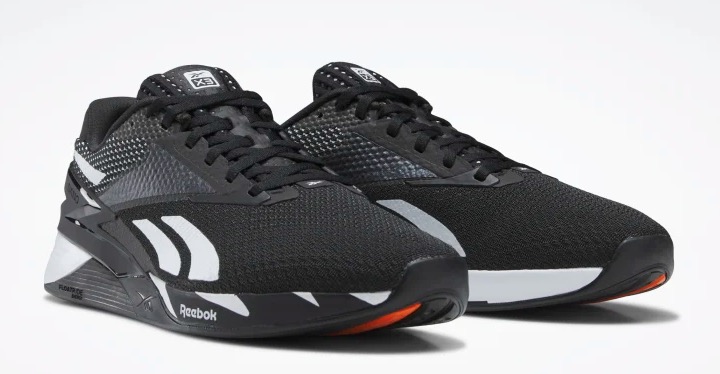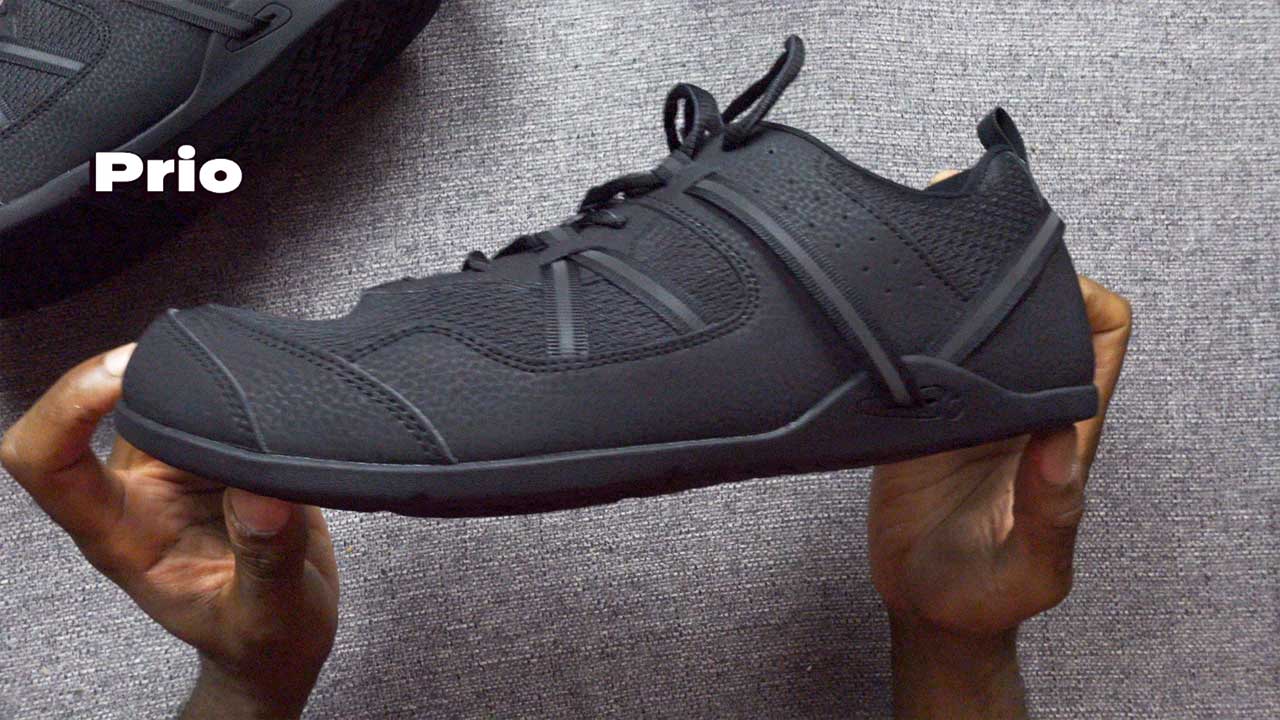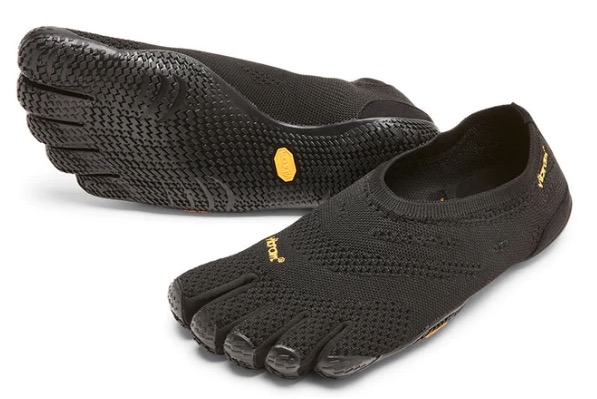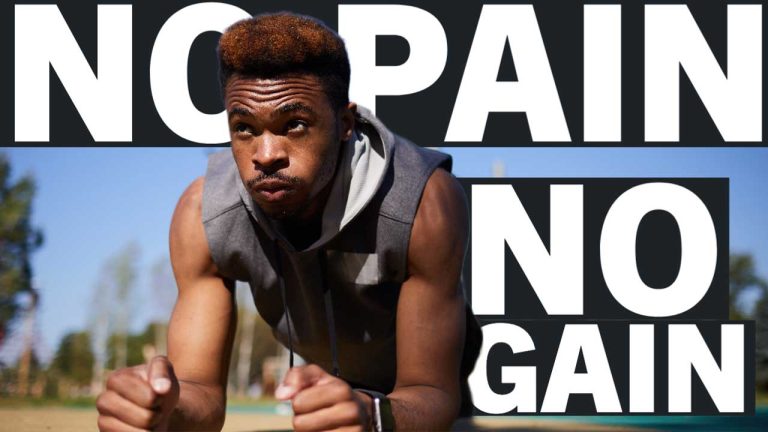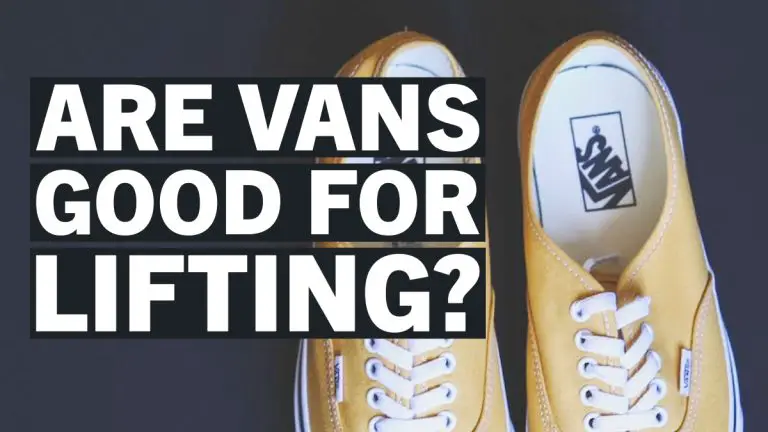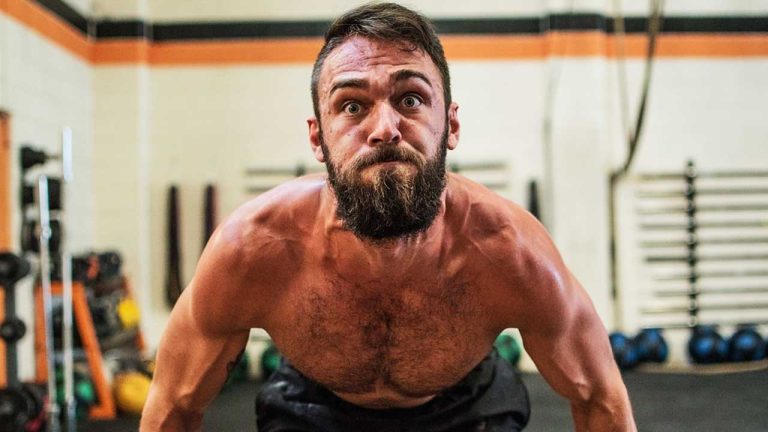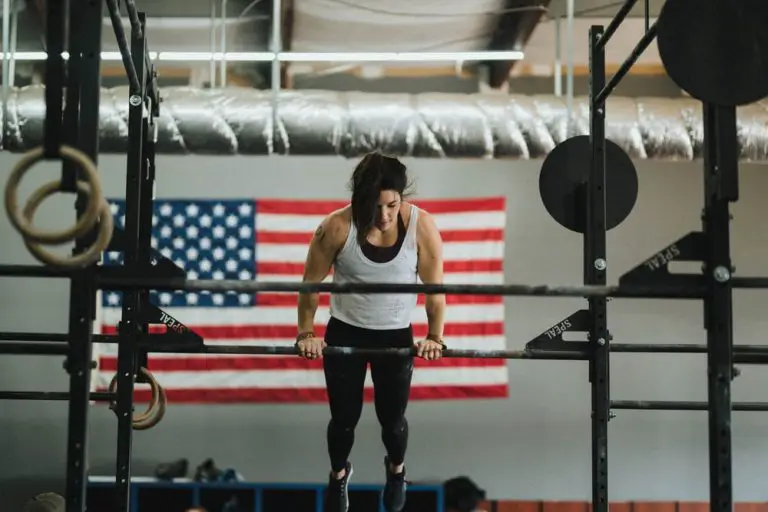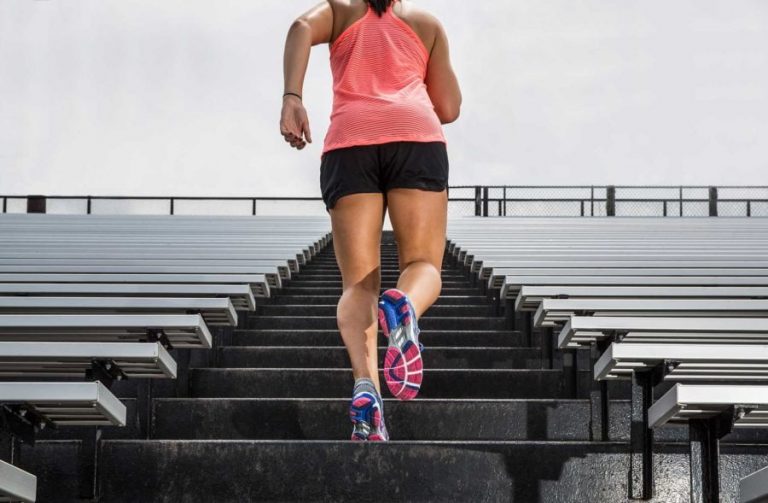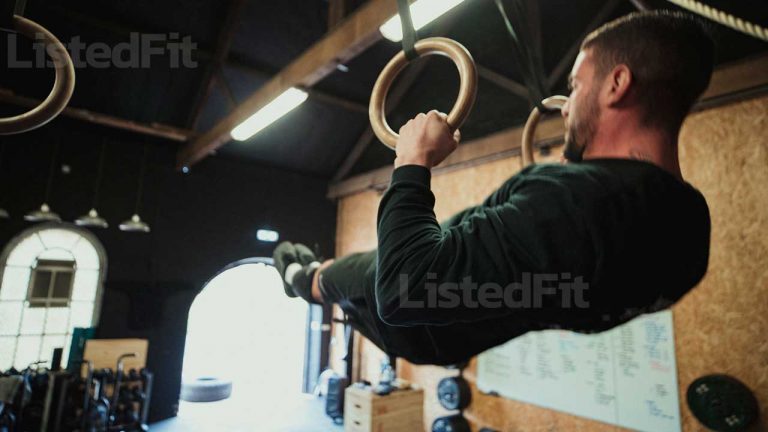The Best CrossFit Shoes for Wide Feet in 2023- My Top Picks
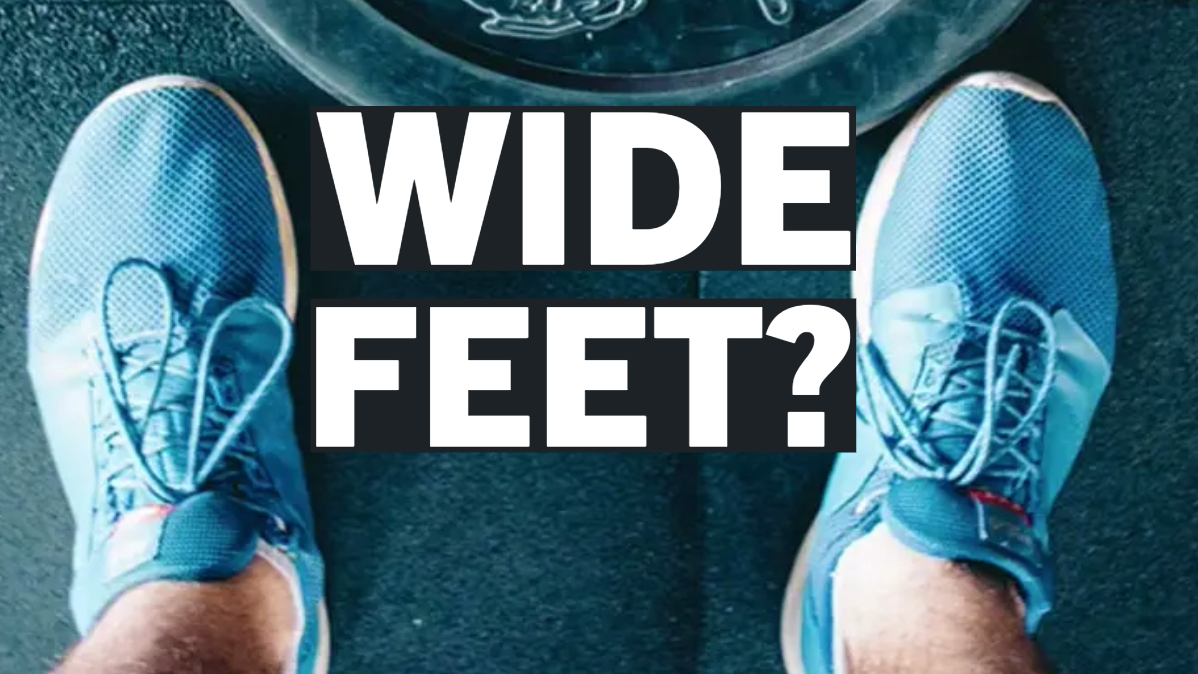
ListedFit is reader-supported. When you buy through links on our site, we may earn a small commission.
What are The Best CrossFit Shoes for Wide Feet? Finally, an answer to the question.
Finding comfortable shoes is difficult, and it’s even more difficult when you need workout shoes with a wide fit.
A lot of the time, reviewers talk about how great a shoe is, but they don’t focus on whether that shoe has wide fit options which can be really disappointing.
I know it’s a common workaround solution, but having to buy a bigger-sized shoe or “sizing up” in order to get a wider fit isn’t ideal. Also means you’ll have that big gap of space in the toe of the shoe.
This guide will show you 3 of the best CrossFit shoes for wide feet (in my opinion) to help people who may need extra help finding good options.
You Don’t Necessarily Need to Have Wide Feet…
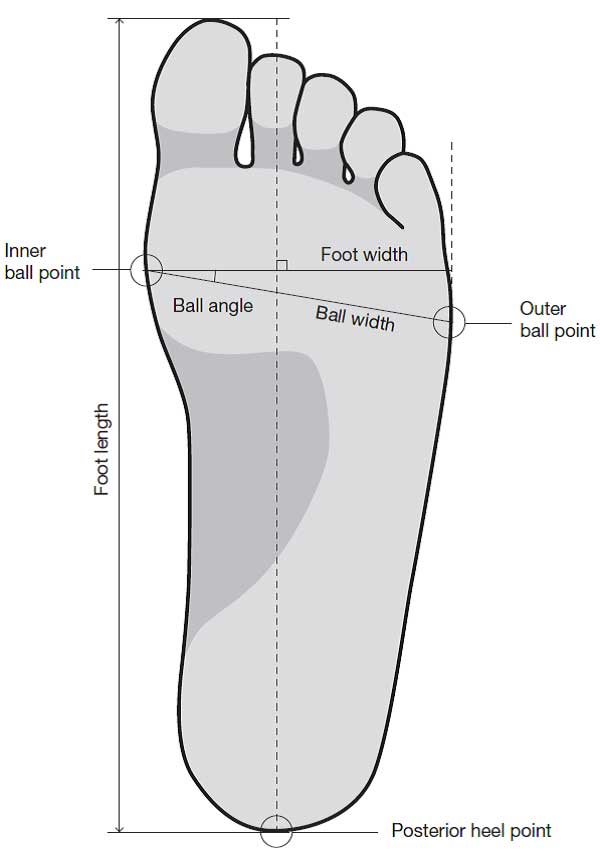
My situation is that I don’t have wide feet but I much prefer to wear a wider-fitting shoe when I workout.
I feel that wider-fitting shoes give me a slight advantage. When it comes to lifting weights and feeling planted on the ground, a wider shoe feels better than a narrower-fitting shoe does.
Being able to really splay my toes out when I’m lifting heavier weights feels more comfortable, and I feel it gives me much better balance and more confidence in the heavier lifts.
So my preference especially for things like squats and deadlifts is a wider shoe.
So I got into trying out several shoes in order to find which one has the features that work best for CrossFit workouts.
Hopefully, you find my results useful!
My Top Picks of 2023
In This Article…
Why Do You Need Special Shoes for CrossFit?
Special shoes for CrossFit are necessary because CrossFit is a high-intensity workout program that puts a lot of stress on the body.
Regular gym trainers don’t have the features to support doing lots of multi-directional movements, running, climbing and lifting weights. So this makes special cross-training shoes necessary.
Getting the right shoes can also provide better stability when lifting and can help prevent injury, aches, and pains in the long run.
The Breakdown – The Best CrossFit Shoes for Wide Feet (2023)
Each of the shoes below offers its own benefits to people with wide feet. I chose these top three because they are extremely comfortable and supportive.
My Best Overall Pick 👍… Inov-8
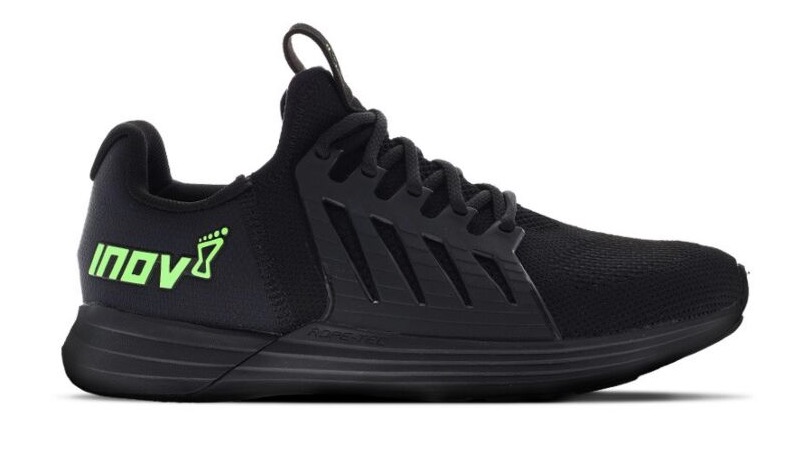
The EVA foam worked well to reduce fatigue in my legs and feet which made them work really well for longer and more intense CrossFit sessions but also, I found they were really comfortable for longer distance running.
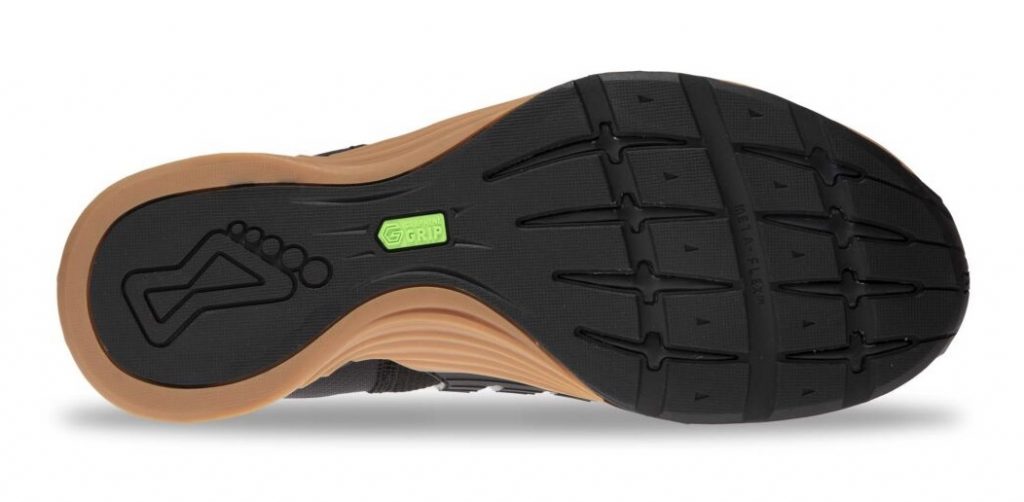
One thing I noticed pretty quickly is the strong grip on these Inov-8 shoes. These G 300s have a noticeably impressive grip, I ran on a wet morning in the park and on a trail and I felt as though there was no chance of me slipping.
The upper of the F-Lite G 300 is made from a lightweight and breathable mesh, which helps to keep your feet cool and comfortable during workouts. The lacing system on the upper also ensures a secure fit.
The outsole is also designed with flex grooves which helps to give you a more natural feeling of foot movement and flexibility.
Add the abrasion-resistant materials in the sole that really help with gripping rope and for me, with the Inov-8s you have a very well-thought-out pair of CrossFit shoes for wide feet.
- A graded fitting system gives a better fit.
- Great for rope climbing.
- Feels very secure to wear.
- Very grippy sole
- A slightly high back takes a little getting used to. Definitely try before you buy.
My Overall Verdict: Inov-8 F-Lite G 300
Overall, I think the Inov-8 F-Lite G 300 is a great choice of CrossFit shoes for wide feet. The wide toe box and midsole provide superior cushioning and support, while the breathable mesh upper and lacing system ensures a secure and comfortable fit.
I’d seriously recommend considering these not just as a CrossFit shoe but for weightlifting, running and hiking too. If you can find these in your size, I would say definitely try them out.
“…These Inov-8s really impressed me. I didn’t expect them to perform as well as running shoes. Great all-rounders. Definitely try them if you can get them in your size.”
Best Runner-Up… Reeboks
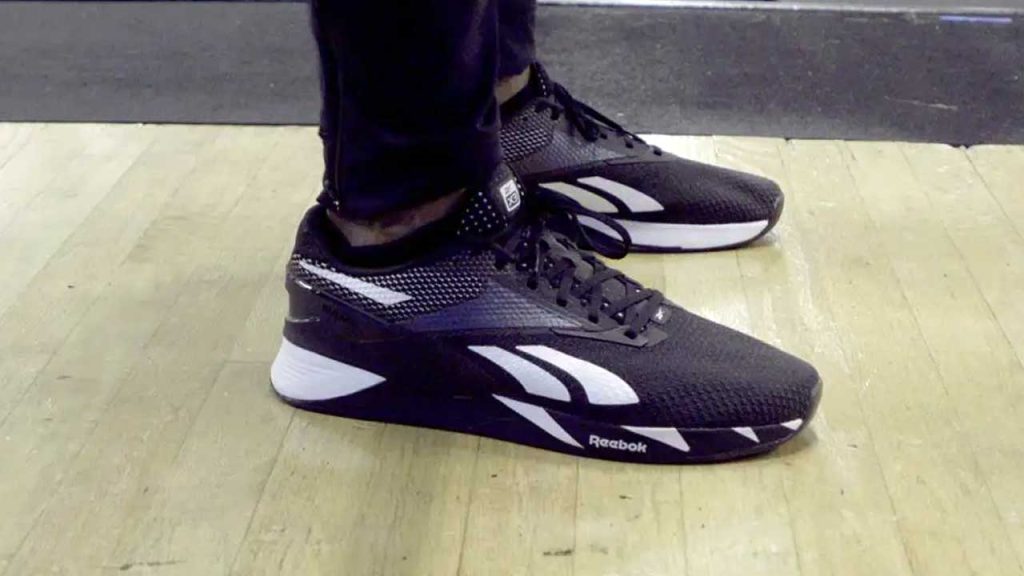
From the first moment I put my feet in them I noticed how roomy they were, the Nano X3 have a quite noticeably roomier toe box that really allows you to splay out your toes when you workout, particularly helpful when stabilizing yourself during squats.
The midsole on the Nano X3 gives a lot more cushioning than the previous X2 did, the cushioning and shock absorption was very good too, which is of course perfect for the high-intensity of CrossFit workouts, particularly jumping and moves involving lots of ground impact.
The upper on the Nano X3 is a lightweight mesh material which keeps your feet very cool, If you live in colder climates Reebok also released a newer iteration which is a winter version of the shoe which comes with more insulation, I wish they were available when I bought my ones.
The outsole provides a good level of grip and traction on a variety of surfaces. No slippage was experienced whatsoever. The Nanos also have a unique cushioning system that sets them apart from many others in this area.
This shoe features Reebok’s ‘Floatride’ Energy Foam midsole which strikes a good balance between rigidity and softness. This means running in them will feel softer. The cushioning system also made them comfortable for longer periods of time, something that’s always welcome.
One thing I will add as well, the Reebok Nano X3 range probably has the best selection of colors I’ve ever seen in a fitness shoe! It’s just a shame the best colours tend to sell out so fast.
- Roomy toe box.
- Versatile and high mobility.
- Great comfort.
- Rope grips that are actually useful.
- The price is slightly higher than others. Look out for deals.
My Overall Verdict: Reebok Nano X3
Overall, I found the Reebok Nano X2 are very nearly a perfect shoe for CrossFit shoe for wide feet. The wider toe box, midsole cushioning, and Lift and Run system make it a very solid choice for high-intensity workouts.
Reebok took the X2 which was actually a very good shoe, and improved it by adding just a little bit more to the offering. I really liked the versatility of the X3, the tougher materials and of course the new ‘Lift and Run’ chassis that gives you a softer landing when you run but a more solid sturdy feeling when you lift.
“The cushioning system also made them a pleasure to wear for longer periods of time, something that is always welcome.”
Best Pick Under $100… Xeros
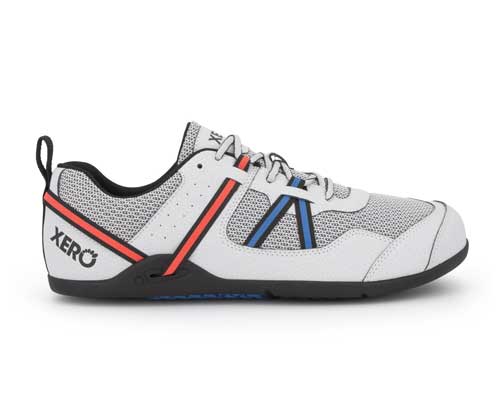
“The result is you get a shoe that gives you more of a natural feel, you build up muscles in your feet that are very likely to have become lazy and also (in my case) your balance is improved when you wear barefoot or minimalist shoes.”
Xero are a new brand, so it’s likely you’ve not heard of them but they are a strong contender in this area. We recently did a deep dive into Xero shoes and the Prio comes highly recommended as a CrossFit shoe for flat feet.
These shoes like the Vivos above are barefoot shoes, which means they’re very stripped down. If you have flat feet, barefoot shoes have been proven to help train you to build muscle in your foot – a little different from the idea of selecting a shoe with arch support, but this is a different approach to fixing the problem of flat feet, more of a long term solution.
The result is you get a shoe that gives you more of a natural feel, you build up muscles in your feet that are very likely to have become lazy and also (in my case) your balance is improved when you wear barefoot or minimalist shoes.
- A durable construction even with it being a cheaper option.
- Flexible outsole.
- Very lightweight feeling.
- Materials could be a little softer.
- Wear thick socks on cold days.
My Overall Verdict: Xero Prio
The Prios are so lightweight, it honestly feels like you are just wearing socks. I really like that the inverted V straps are not sewn down. This aspect allowed me to lock in my instep while ensuring my toes were still free to move around.
“You get a shoe that gives you more of a natural feel, with barefoot shoes your foot alignment and balance improves. You strengthen muscles in your feet that have likely become lazy over the years.(…)Overall, a good experience.”
My Best Alternative Pick… New Balance
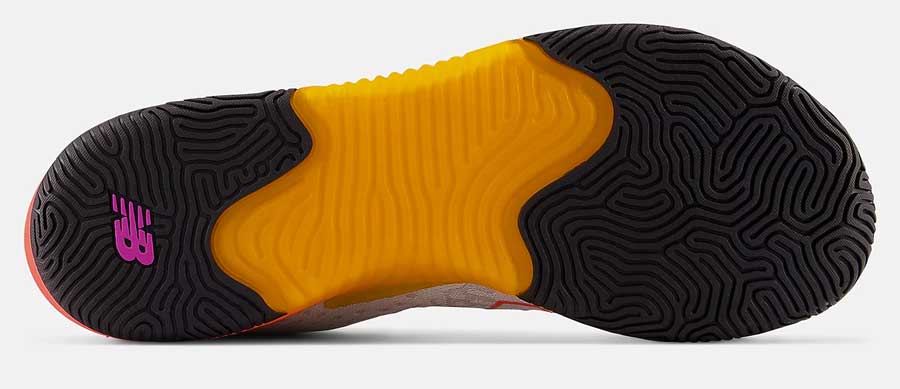
The mesh upper makes this shoe light and breezy enough for high-intensity interval training, while the midsole shank ensures sufficient stability for heavyweight lifting. This is a terrific minimalist alternative for a dynamic gym trainer before lifting weights.
These shoes are a great choice for agility because of their snug fit and surprisingly flexible midsole. People with wide feet can use this pair for more dynamic workouts and heavy weight lifting.
This lightweight, zero-drop trainer provides a pleasant transition to a minimalist shoe from more traditional designs on the market.
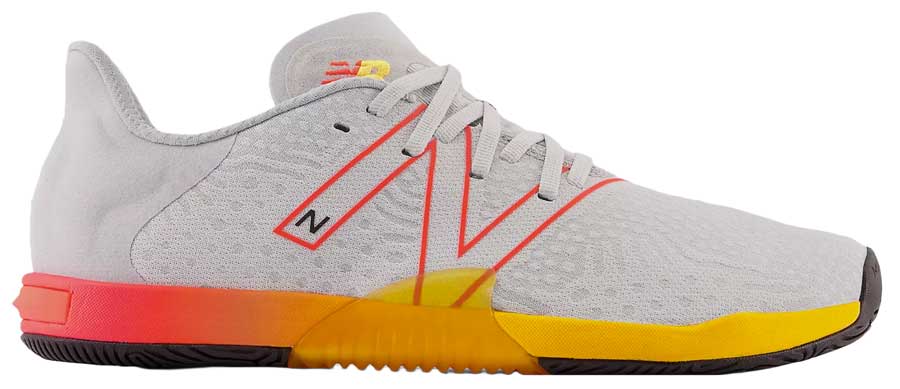
These shoes are notoriously grippy when worn on synthetic flooring, such as rubber mats and gym platforms typically found in gyms. I feel that they stabilize and support the orientation of the feet very well.
I find that minimalist or barefoot shoes like these remind and encourage me to correct my gait and foot position especially when I’m working out mainly because they give you such a true connection with the ground.
The ankles and arches don’t roll or tip too much, both of which are a threat to people with broad feet when doing weighted dynamic activities.
My Overall Verdict
“These shoes are notoriously grippy when worn on synthetic floorings, such as rubber mats and tiles typically found in fitness centres. Thus, the pair can stabilize and support the orientation of the feet very well.”
- Stylish
- Great comfort and fit.
- Unique tread.
- A little less toe-box space than in others.
- Not best for rope climbing.
What to Look for in a Training Shoe
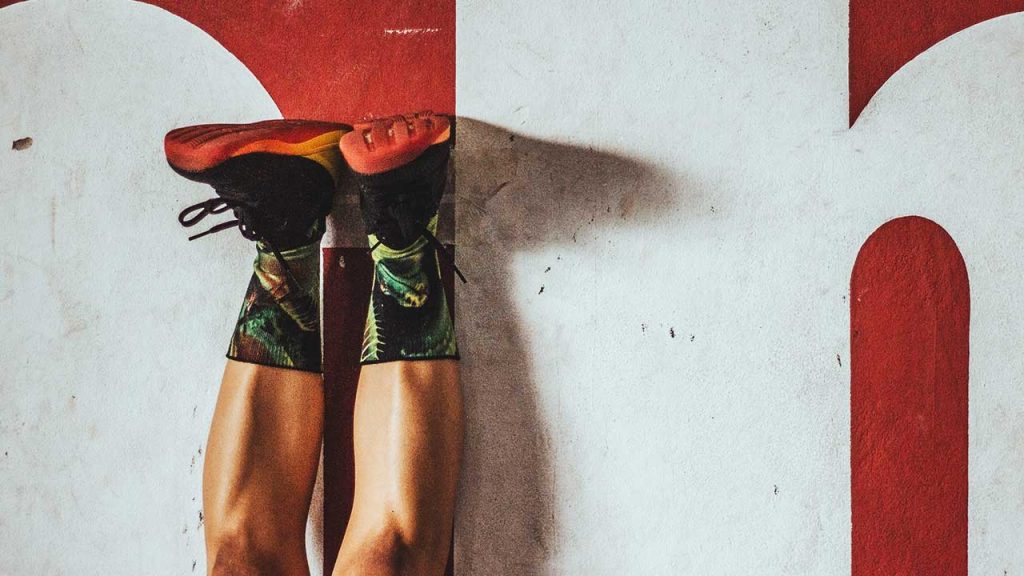
When it comes to finding the best CrossFit shoes for wide feet, it’s essential to select the right shoe for your specific training needs.
In this section, we will cover various aspects of training to help you make the best choice.
Running and Cardio
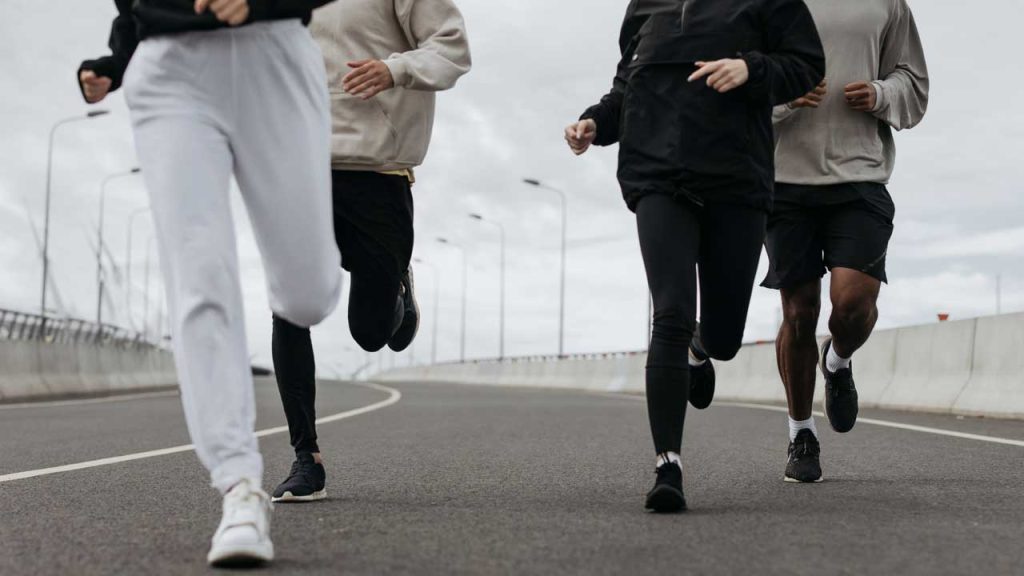
For running and cardio workouts, you’ll want a shoe with ample cushioning and support to reduce stress on your feet and joints.
Look for shoes with a wider toe box, allowing your toes to spread out comfortably during high-intensity cardio sessions.
Flexibility in the forefoot is also important, as it allows for a smoother stride while running or performing other cardio exercises, such as jump rope or agility ladders.
Weightlifting and Heavy Lifts
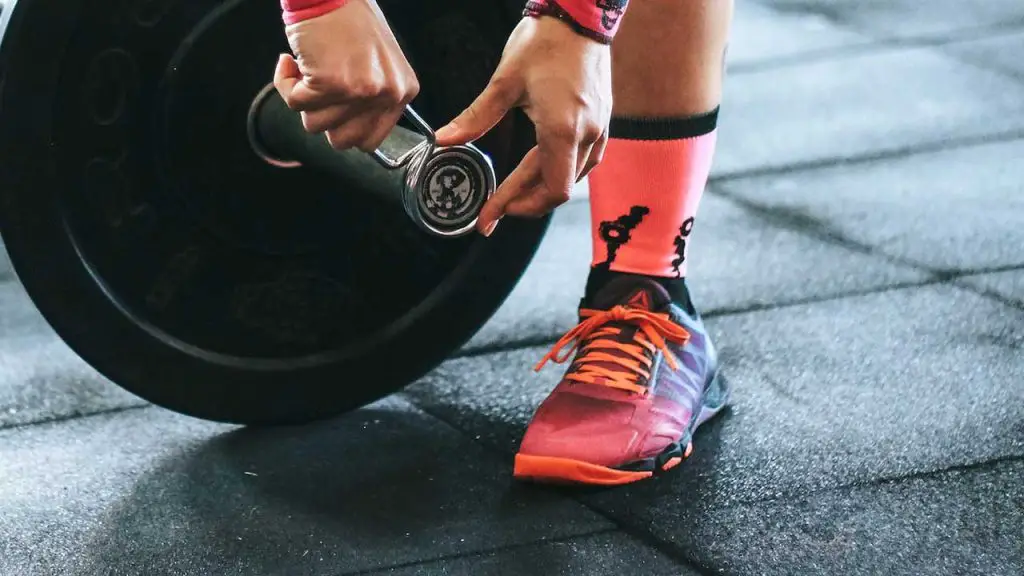
When engaging in weightlifting and heavy lifts, stability is key. Shoes specifically designed for lifting often have minimal cushioning and a flat, solid sole, which provide a stable base and optimal power transfer during lifts like squats and deadlifts. Some cross-training shoes may cater to both running and weightlifting needs. Be sure to prioritize shoe features that cater to the kind of strength-training exercises you frequently perform.
Plyometrics and Box Jumps
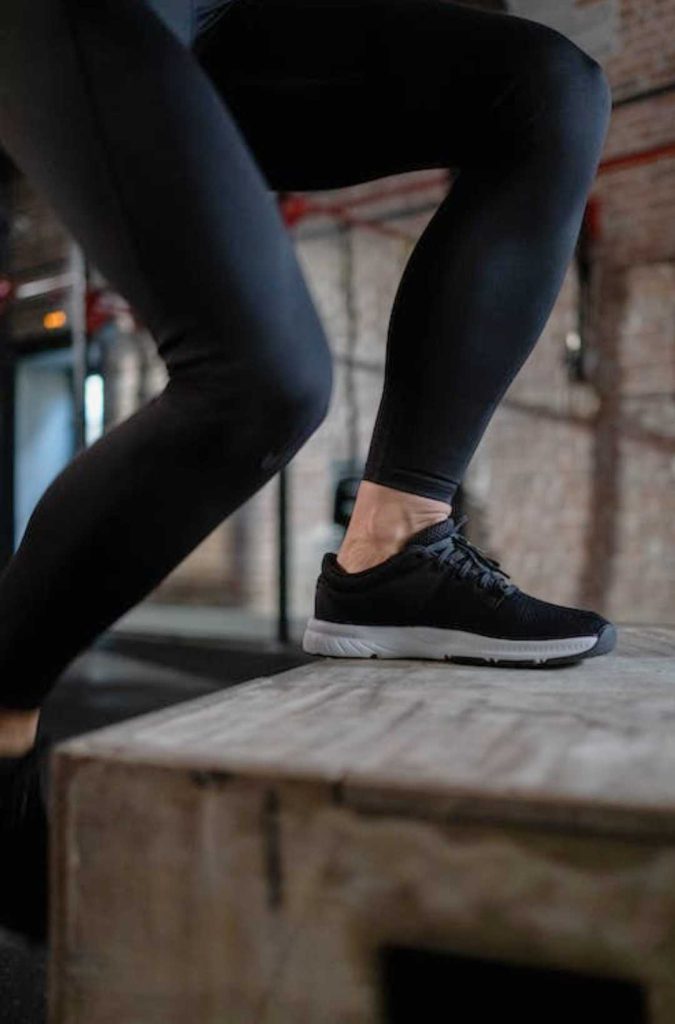
Plyometrics and box jumps require shoes with a proper balance of cushioning, stability, and grip. When performing these high-impact exercises, it’s vital to have shoes that absorb shock and provide strong lateral support to minimize the risk of injury. Look for shoes with a durable outsole and sufficient traction to handle both indoor and outdoor surfaces.
Rope Climbs and Functional Fitness
Rope climbs and other functional fitness activities demand shoes with excellent grip, durability, and flexibility.
Select shoes with abrasion-resistant materials and reinforced areas, especially around the toe and heel, to prevent wear and tear from rope friction.
Additional features like a heel clip or medial guard can also help enhance grip and stability during various functional fitness exercises.
FAQs – Working out With Wide Feet
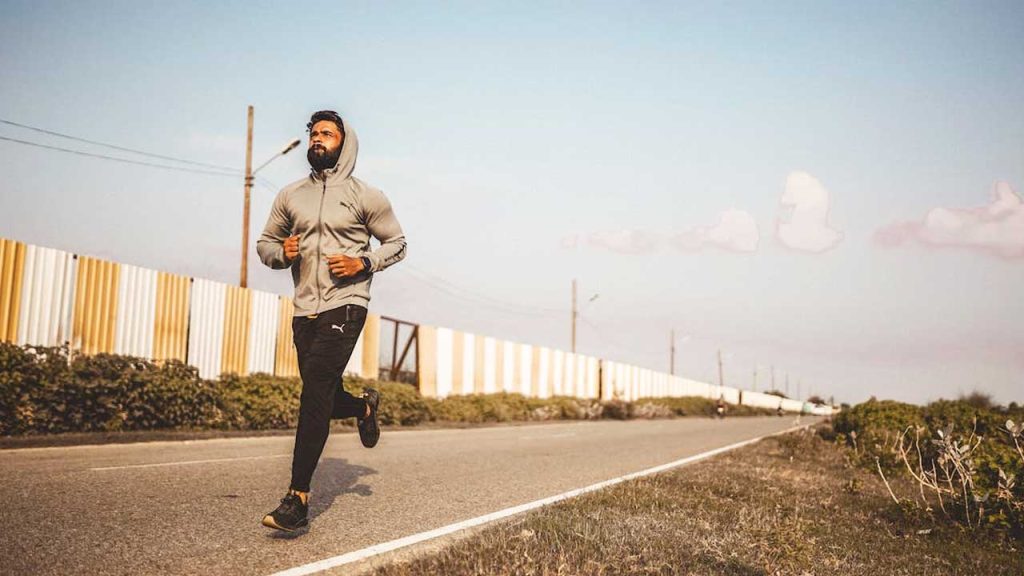
How Common Are Wide Feet?
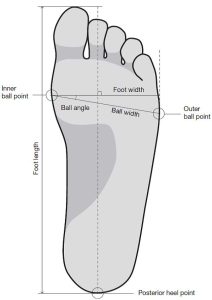
What many people don’t realise is that wide feet are actually quite common.
Approximately 20-30% of the adult population have wide feet, and this number increases with age.
How to Stretch Out Shoes for Wide Feet?
There are a number of ways to stretch out shoes for wide feet. The most common is to use a shoe stretcher or shoe tree.
You simply put these into the shoes and they can be adjusted to stretch the material of the shoe to make it slightly wider and more comfortable.
Another option is to use a shoe stretching spray, which helps to make the shoe material more pliable and easier to stretch.
How to Know If You Need a Wide-Fit Shoe?
To know if you need wide fit shoes, the best thing you can do is to measure your foot to determine its exact size and shape.
If your foot measures wider than the average foot, then you may need a wide-fit shoe.
If you’re concerned that you will never be able to get shoes anymore there are also a number of brands that specialize in shoes for wider feet.
Can a Normal Foot Fit in a Wide Shoe?
A normal foot can fit in a wide shoe and in my case can be more comfortable than wearing normal more narrow fitting shoe, but it may not be the most comfortable option for everybody.
A wide shoe is more likely to have more room in the toe box, but it can also be too loose in other areas, such as the heel.
The solution is to try before you buy whenever possible. Don’t just walk up and down in a straight line when you try a pair of shoes on either. Flex your feet, jump, and squat down etc to really see if these shoes are a comfortable fit.
How to Choose the Best Shoes for Wide Feet?
To choose the best shoes for wide feet, it is important to try them on first if you can and ensure that the fit is comfortable.
It is also important to read reviews from other people with wide feet to see if the shoes worked for them.
Tempting as it may be when you find a shoe that you really like, don’t force yourself into shoes that are too tight this will of course cause discomfort, while shoes that are too loose can cause blisters and other stability issues.
Are There Any Disadvantages to Wearing Workout Shoes for Wide Feet?
The main disadvantage to wearing workout shoes for wide feet is that they sometimes can be more expensive than regular workout shoes.
The good news, however, is that things are changing, many brands are now starting to offer wider options at no extra cost, as they should!
Author
-
Stuart Patrick is a health and fitness lifestyle journalist who writes for ListedFit.com.
“I've spent a lot of time trying to get in shape and change my body and I realised there are so many untruths in the health and fitness industry that can slow down or stop your progress, so I share my knowledge and experience to help others to cut through the BS.”
Latest entries
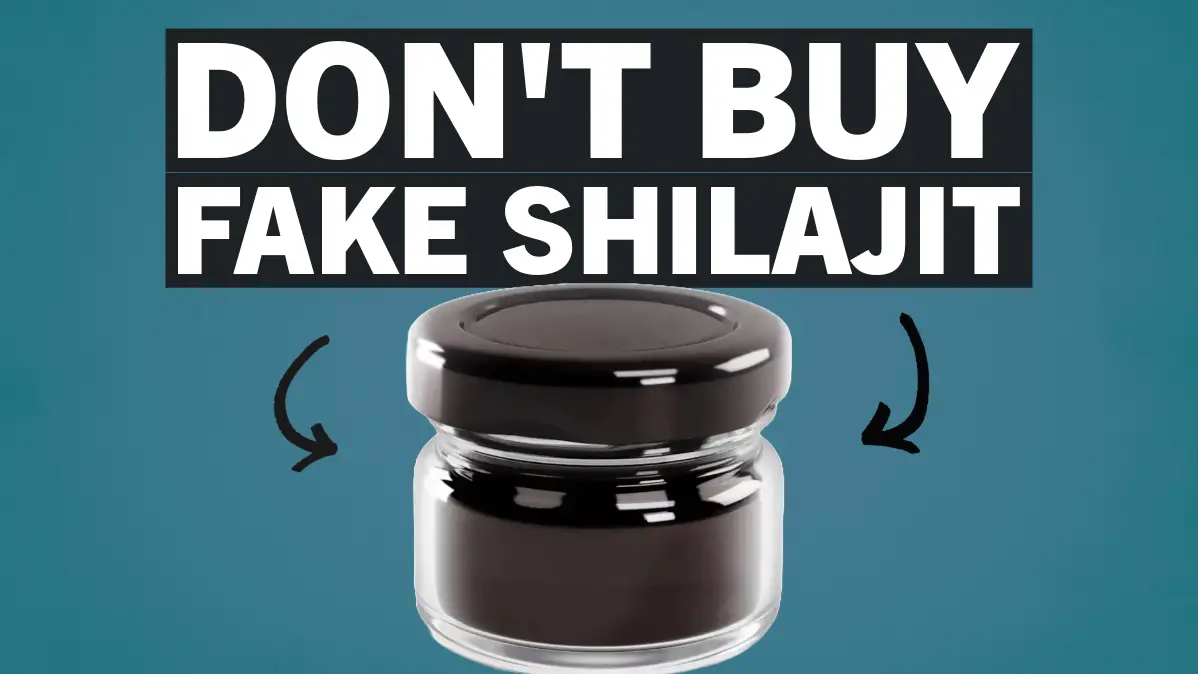 NutritionJune 5, 2024Shilajit Products
NutritionJune 5, 2024Shilajit Products FitnessMay 14, 2024Donate Blood
FitnessMay 14, 2024Donate Blood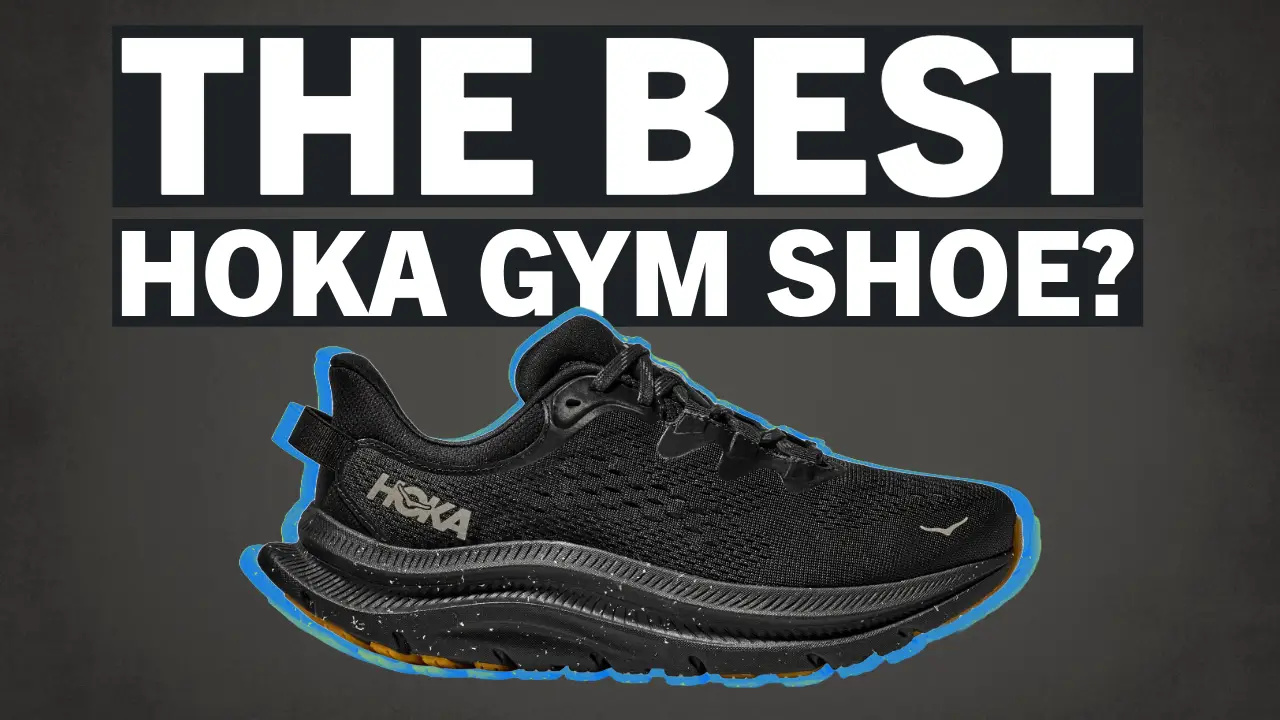 GearApril 6, 2024HOKA Kawana 2 Review – Are These The Best HOKA Gym Shoes?
GearApril 6, 2024HOKA Kawana 2 Review – Are These The Best HOKA Gym Shoes?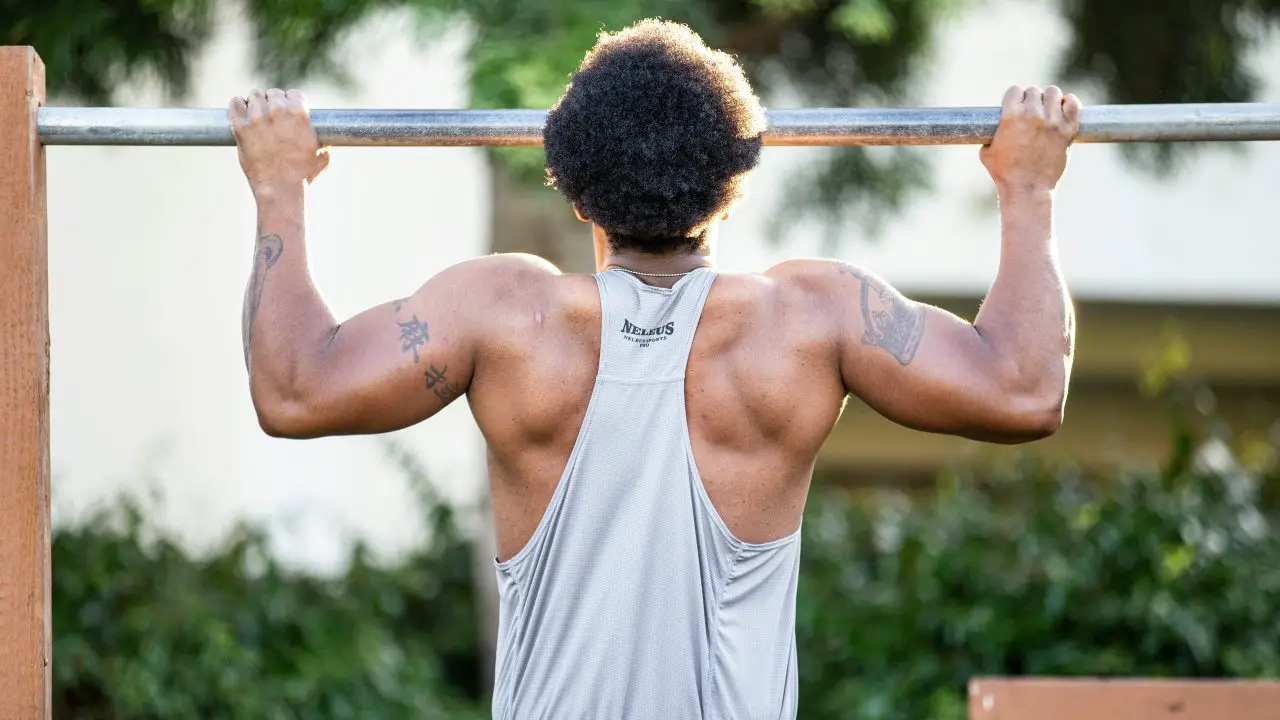 CrossFitApril 4, 2024How Many Pull-Ups Should I Do Daily? Let’s Figure it Out…
CrossFitApril 4, 2024How Many Pull-Ups Should I Do Daily? Let’s Figure it Out…
Affiliates:
This post may contain affiliate links that at no additional cost to you, the site may earn a small commission. We only recommend products we would use ourselves and all opinions expressed on this site are our own.
General Advice:
The information provided in this article is for general informational purposes only. It is not intended as a substitute for professional advice. Always consult with a qualified healthcare professional before starting any new diet, exercise program, or making changes to your health routine.
Accuracy Advice:
While we strive to provide up-to-date and accurate information, the content in this article may not reflect the most current research or medical guidelines. We encourage readers to do further research and consult with professionals for more personalized advice.
Our Recommendations:
The products and services mentioned in any of our articles are recommended based on our independent research and personal experience. We are not sponsored by any company. We aim to suggest products and services we believe are of high quality and could be beneficial to our readers.

